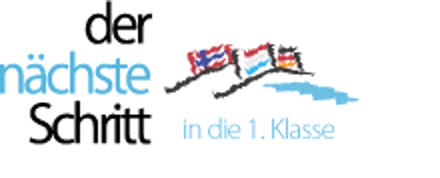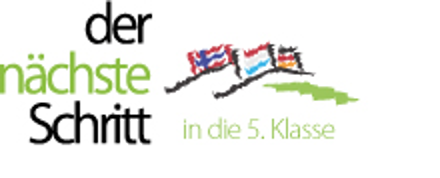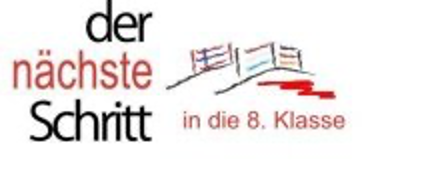SIMCUR – Social Integration of Immigrant Children – Uncovering Family and School Factors Promoting Resilience
SIMCUR is one of 12 NORFACE projects. Principal Investigator is Birgit Leyendecker (Psychology Department of the Ruhr University/ International Centre for Family Research ICFR) in cooperation with Axel Schölmerich (RUB), Judi Mesman and Marinus van IJzendoorn (University of Leiden, The Netherlands) and Brit Oppedal (Institute of Public Health, Oslo, Norway). http://www.norface-migration.org/currentprojectdetail.php?proj=9
GOALS AND OBJECTIVES
The main objective of the proposed research was to uncover the processes underlying developmental resilience in children from immigrant families during the transitions to primary and secondary education in three European countries. We examined these processes on the level of the individual, the family, the school, and the community. By comparing children in Germany, the Netherlands, and Norway, the study will also elucidate the impact of broader societal influences.
Mastering major educational transitions is a critical indicator of social integration and is related to individual psychosocial adaptation. Elucidating the processes underlying migrant children’s adaptation to these transitions provides insights for theories of child development in general, and theories of resilience in migrant children in particular. These insights can be translated into recommendations for suitable ways to support migrant parents, to organise the educational system to foster equal opportunities for children from migrant families, and to construct policies that will facilitate the overall societal success of migrant families.
DESIGN AND PARTICIPANTS
German Site:
In a longitudinal cohort design based on the two school transitions, we studied 380 immigrant families with origins in Turkey and 120 non-immigrant German families. Cohort-sequential design with three cohorts:



METHODS:
At each assessment, variables from all levels of functioning were measured using multiple methods (observations, interviews, tests, and surveys), obtained from multiple sources (children, mothers, fathers, teachers, and principals).
Data collection at all three sites was finished in summer 2014.
Publication of the international data at GESIS:
Leyendecker, B., Mesman, J., / Oppedal, B. (2017). SIMCUR – Social Integration of Migrant Children – Uncovering Family and School Factors Promoting Resilience. GESIS Datenarchiv, Köln https://doi.org/10.4232/1.12705.
Publications of the data collected in Germany:
Willard, J. A., Çiğtay-Akar, Y., Kohl, K., & Leyendecker, B. (in press). An explorative study of the correlates of Turkish vocabulary in adolescent Turkish heritage language learners in Germany. In F. Bayram (Ed.), Studies in Turkish as a heritage language. Amsterdam: John Benjamins.
Willard, J.A., Hammer, C.S., Bitetti, D., Cycyk, L.M., & Leyendecker, B. (2019). Mothers’ depressive symptoms and their children’s Turkish heritage language vocabulary development. International Journal of Bilingualism, 23 (1), 71-86. https://journals.sagepub.com/doi/pdf/10.1177/1367006917709095
Jaekel, N., Jaekel, J., Willard, J., & Leyendecker, B. (2019). No evidence for effects of Turkish immigrant children’s bilingualism on executive functions. PLoS ONE 14(1). DOI: 10.1371/journal.pone.0209981 https://journals.plos.org/plosone/article?id=10.1371/journal.pone.0209981
Fassbender, I., & Leyendecker, B. (2018). Socio-Economic Status and Psychological Well-Being in a Sample of Turkish Immigrant Mothers in Germany. Frontiers in Psychology, 9, 1586. https://doi.org/10.3389/fpsyg.2018.01586
Demir, M. & Leyendecker, B. (2018) School related social support is associated with school engagement, perceived self- competence and health-related quality of life (HRQoL) in Turkish immigrant students. Frontiers in Education, Section Educational Psychology. https://doi.org/10.3389/feduc.2018.00083
Spiegler, O., Sonnenberg, K., Fassbender, I., & Leyendecker, B. (2018). Ethnic and National Identity Development and School adjustment: A longitudinal study with Turkish immigrant-origin children. Journal of Cross-Cultural Psychology, 49 (7), 1009-1026. https://journals.sagepub.com/doi/pdf/10.1177/0022022118769773
Spiegler, O. & Leyendecker, B. (2017). Balanced cultural identities promote cognitive flexibility among immigrant children. Frontiers in Psychology, Section Cultural Psychology. https://doi.org/10.3389/fpsyg.2017.01579
Jäkel, J., Leyendecker, B., & Agache, A. (2016). Inconsistent paternal behavior predicts Turkish immigrant and German children’s and adolescents’ mental health. Journal of Child & Adolescent Behavior, 4:4, DOI: 10.4172/2375-4494.1000307 http://www.esciencecentral.org/journals/inconsistent-paternal-behavior-predicts-turkish-immigrant-and-germanchildren-s-and-adolescents-mental-health-2375-4494-1000307.pdf
Spiegler, O., Güngör, D., & Leyendecker, B. (2016). Muslim immigrant parents’ social status moderates the link between religious parenting and children’s identification with the heritage and host culture. Journal of Cross-Cultural Psychology, 47 (9), 1159-1177. doi: 10.1177/0022022116665170 http://jcc.sagepub.com/content/early/2016/08/17/0022022116665170.abstract
Spiegler, O., Verkuyten, M., Thijs, J., & Leyendecker, B. (2016). Low ethnic identity exploration undermines positive inter-ethnic relations: A study among Turkish immigrant-origin youth. Cultural Diversity and Ethnic Minority Psychology. 22 (4), 495-503. DOI: 10.1037/cdp0000090 http://psycnet.apa.org/psycinfo/2016-17176-001/
Leyendecker, B. & Agache, A. (2016). Engagement türkischstämmiger Väter im Familien- und Erziehungsalltag fördert das subjektive Wohlbefinden von Kindern. Praxis der Kinderpsychologie und Kinderpsychiatrie (65), 57-74.
Kohl, K., Jäkel, J., & Leyendecker, B. (2015). Schlüsselfaktor elterliche Beteiligung: Warum Lehrkräfte türkischstämmige und deutsche Kinder aus belasteten Familien häufig als verhaltensauffällig einstufen. (Parental involvement in school is the key to teacher judgement of Turkish immigrant and German children’s behavior problems). Zeitschrift für Familienforschung/ Journal of Family Research. 193-207.
Spiegler, O., Leyendecker B., & Kohl, K. (2015). Acculturation gaps between Immigrant Turkish Marriage Partners: Resource or source of distress? Journal of Cross-Cultural Psychology, 46 (5), 667-686. DOI: 10.117/0022022115578686
Jäkel, J., Leyendecker, B., & Agache, A. (2015). Family and individual factors associated with Turkish immigrant and German children’s and adolescents mental health. Journal of Child and Family Studies, 24 (4), 1097-1105. DOI 10.1007/s10826-014-9918-3, http://link.springer.com/article/10.1007%2Fs10826-014-9918-3
Willard, J., Agache, A., Jäkel, J., Glück. C., & Leyendecker, B. (2015) Family factors predicting vocabulary in Turkish as a heritage language. Applied Psycholinguistics, 36(4), 875-898. http://dx.doi.org/10.1017/S0142716413000544
Kohl. K., Jäkel, J., Spiegler, O., Willard, J., & Leyendecker, B. (2014). Eltern und Schule – wie beurteilen türkischstämmige und deutsche Mütter sowie deutsche Lehrer elterliche Verantwortung und Beteiligung? Psychologie in Erziehung und Unterricht, 61(2), 96-111. http://dx.doi.org/10.2378/peu2013.art21d